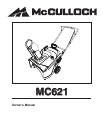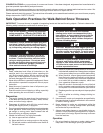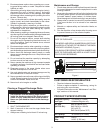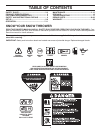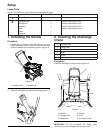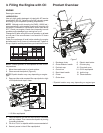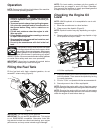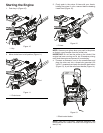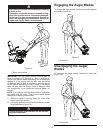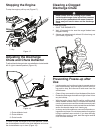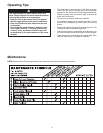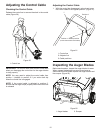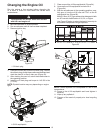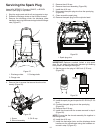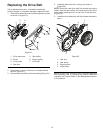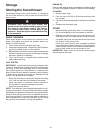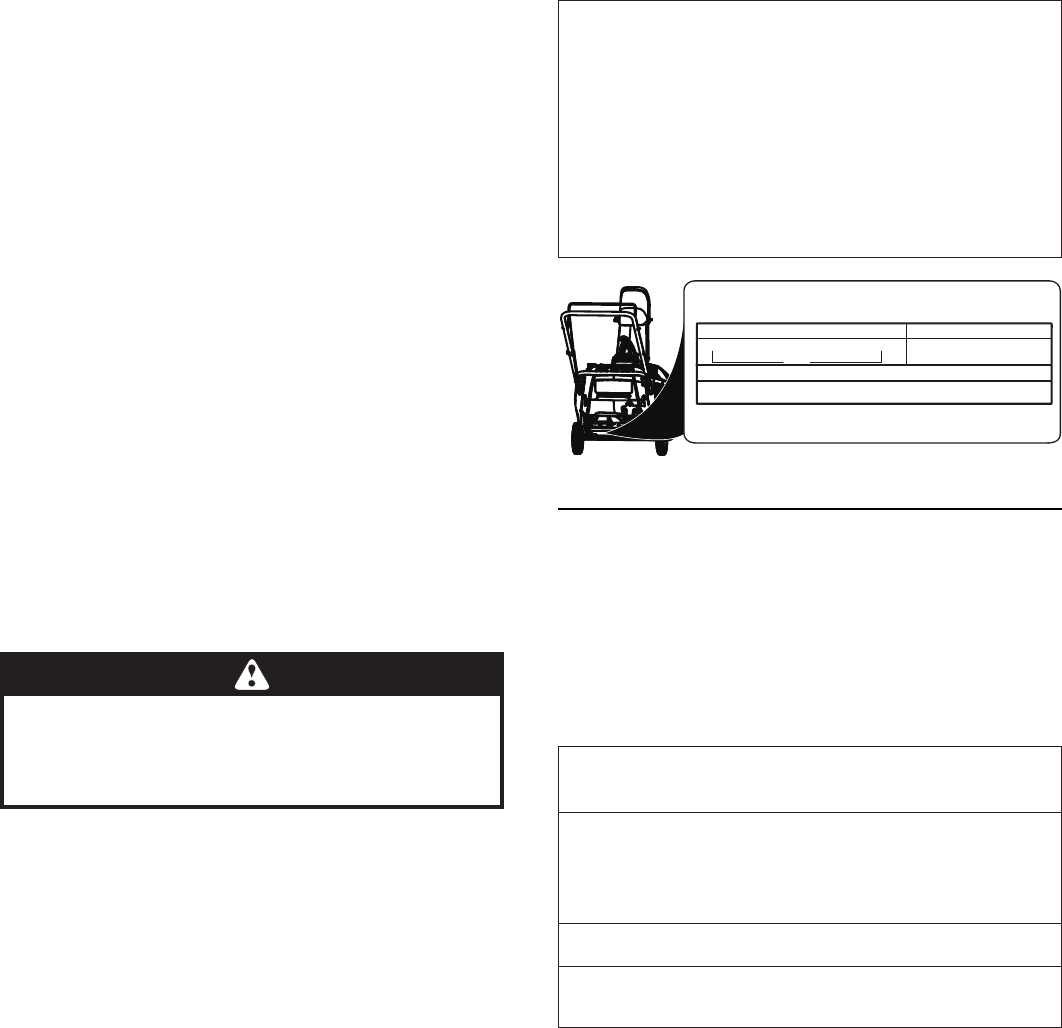
3
CUSTOMER RESPONSIBILITIES
• Read and observe the safety rules.
• Follow a regular schedule in maintaining, caring for
and using your snow thrower.
• Follow the instructions under “Maintenance” and “Stor-
age” sec tions of this manual.
PRODUCT SPECIFICATIONS
Gasoline Capacity 1.6 Quarts (1,5 Liters)
and Type: Unleaded Regular only
Oil Type SAE 30 (above 50°F)
(API SG–SL): SAE 5W-30 or 10W-30
(32° to 50°F)
SAE 5W-30 (below 32°F)
Oil Capacity: 16 Ounces (0,47 Liters)
Spark Plug: F6RTC
Gap: 0.030" (0,762 mm)
SERIAL NUMBER: ___________________________
DATE OF PURCHASE: _______________________
THE MODEL AND SERIAL NUMBERS WILL BE FOUND
ON A DECAL ATTACHED TO THE REAR OF THE SNOW
THROWER HOUSING (Figure 1).
YOU SHOULD RECORD BOTH SERIAL NUMBER AND
DATE OF PURCHASE AND KEEP IN A SAFE PLACE
FOR FUTURE REFERENCE.
Figure 1
SERIAL
CATALOG
PRODUCT MAINTENANCE LEVEL
MODEL
CONFORMS TO ANSI B71.3-2005 SAFETY STANDARDS
407435
FOR SERVICE CALL 1-800-849-1297
ASSEMBLED IN U.S.A.
Orangeburg, SC 29118
2. Exercise extreme caution when operating on or cross-
ing gravel drives, walks, or roads. Stay alert for hidden
hazards or traffic.
3. After striking a foreign object, stop the engine (motor),
disconnect the cord on electric motors, thoroughly
inspect the snow thrower for any damage, and repair
the damage before restarting and operating the snow
thrower. Remove key.
4. If the unit should start to vibrate abnormally, stop the
engine (motor) and check immediately for the cause.
Vibration is generally a warning of trouble.
5. Stop the engine (motor) whenever you leave the op-
erating position, before unclogging the auger housing
or discharge chute, and when making any repairs,
adjustments or inspections.
6. When cleaning, repairing or inspecting the snow thrower,
stop the engine and make certain the auger blades and
all moving parts have stopped. Remove key.
7. Do not run the engine indoors, except when starting
the engine and for transporting the snow thrower in or
out of the building. Open the outside doors; exhaust
fumes are dangerous.
8. Exercise extreme caution when operating on slopes.
9. Never operate the snow thrower without proper guards,
and other safety protective devices in place and working.
10. Never direct the discharge toward people or areas
where property damage can occur. Keep children and
others away.
11. Do not overload the machine capacity by attempting
to clear snow at too fast a rate.
12. Never operate the machine at high transport speeds
on slippery surfaces. Look behind and use care when
operating in reverse.
13. Disengage power to the auger blades when snow
thrower is transported or not in use.
14. Use only attachments and accessories approved by
the manufacturer of the snow thrower.
15. Never operate the snow thrower without good visibility
or light. Always be sure of your footing, and keep a firm
hold on the handles. Walk; never run.
16. Never touch a hot engine or muffler.
Clearing a Clogged Discharge Chute
Hand contact with the rotating auger blades
inside the discharge chute is the most common
cause of injury associated with snow throwers.
Never use your hand to clean out the discharge
chute.
To clear the chute:
1. SHUT THE ENGINE OFF!
2. Wait 10 seconds to be sure the auger blades have
stopped rotating.
3. Always use a clearing tool at least 15 inches long.
Maintenance and Storage
1. Check shear bolts and other bolts at frequent intervals
for proper tightness to be sure the equipment is in safe
working condition.
2. Never store the machine with fuel in the fuel tank inside
a building where ignition sources are present such as
hot water heaters, space heaters, or clothes dryers.
Allow the engine to cool before storing in any enclosure.
3. Always refer to operator’s manual for important details
if the snow thrower is to be stored for an extended
period.
4. Maintain or replace safety and instruction labels, as
necessary.
5. Run the machine a few minutes after throwing snow
to prevent freeze-up of the collector/impeller.



